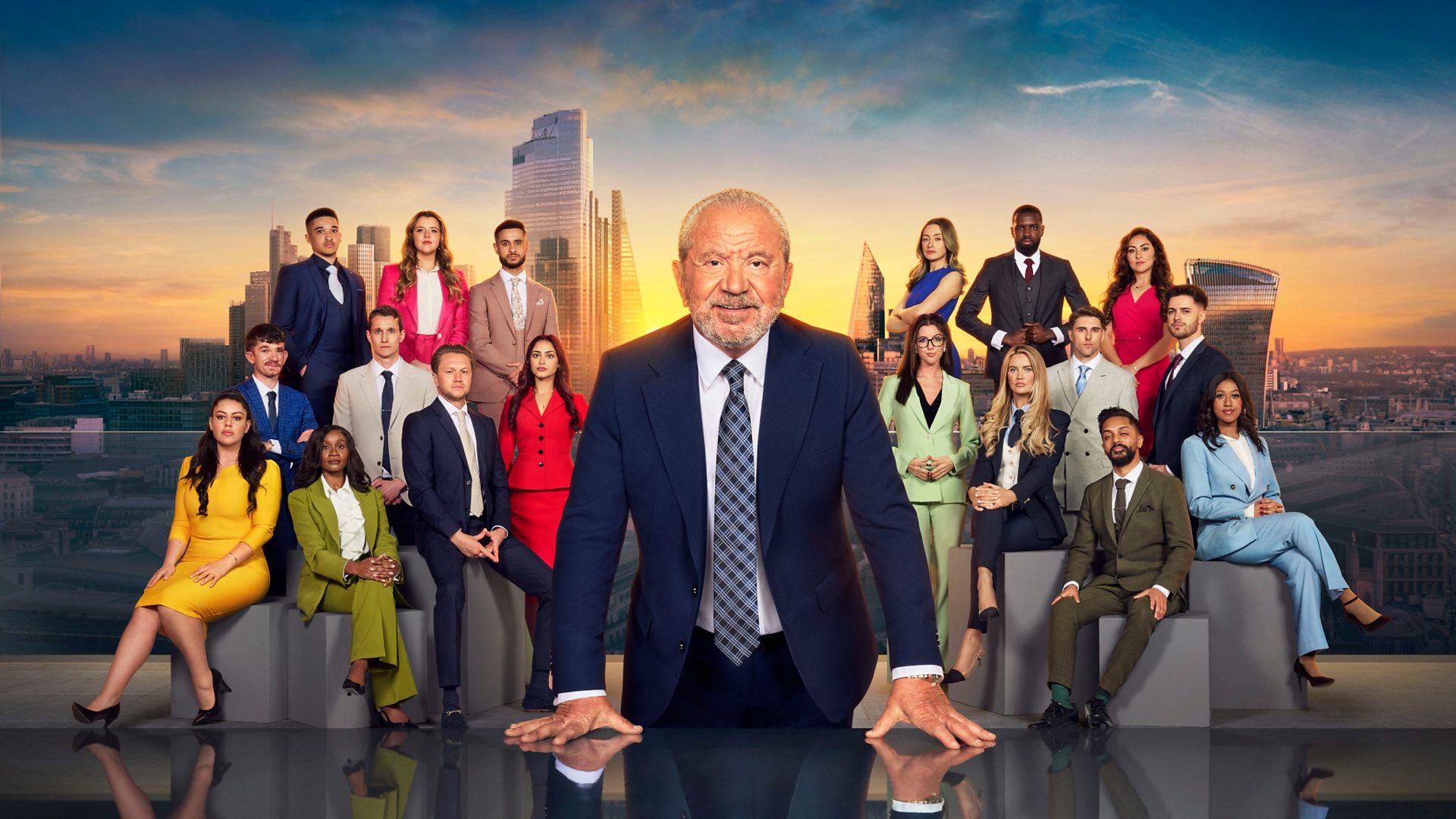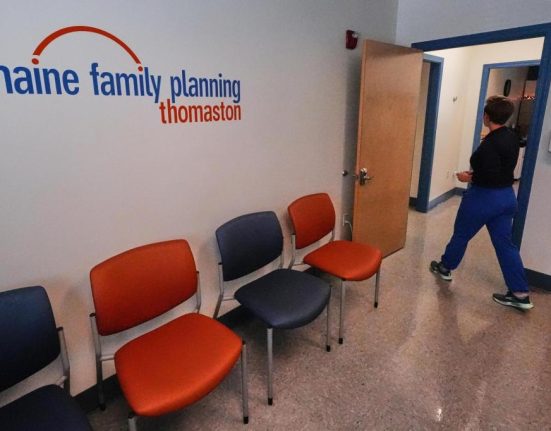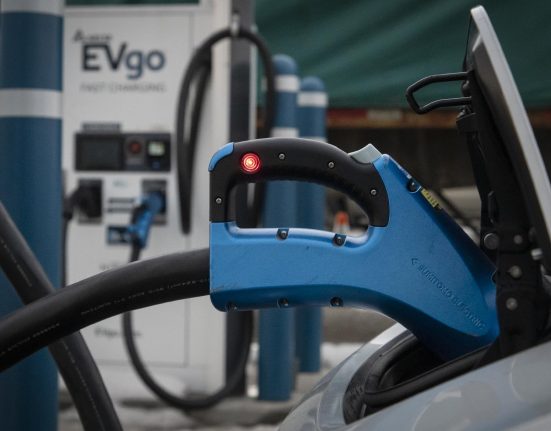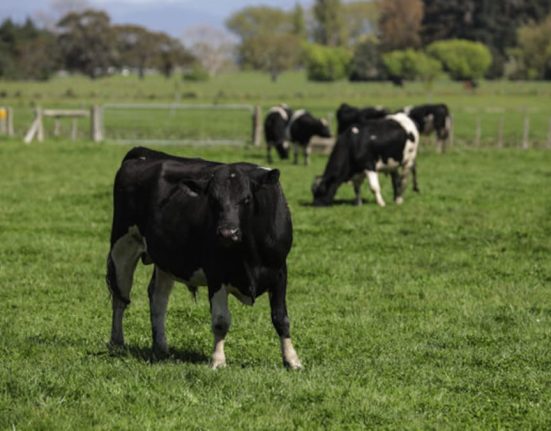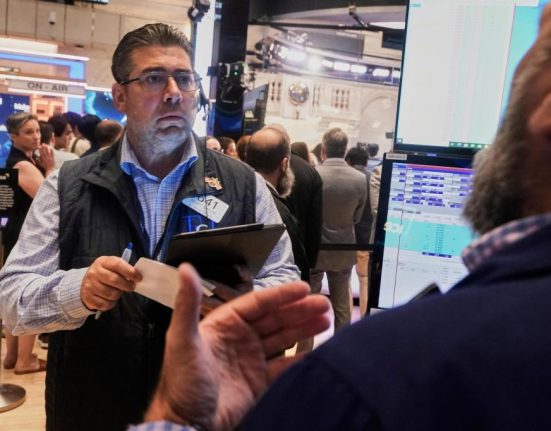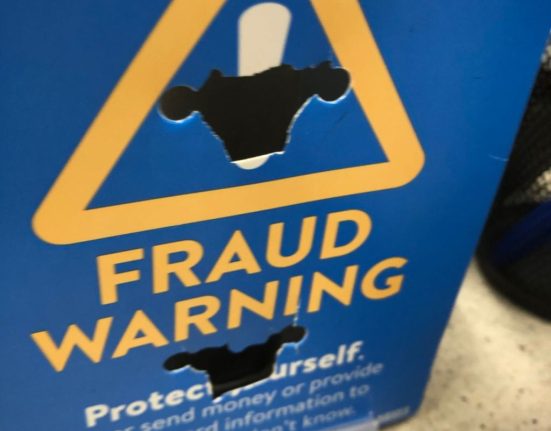It’s the penultimate episode of the series and the final five entrepreneurs come face to face with Lord Sugar’s most trusted advisors for the toughest interviews of their lives.
Picking apart their business plans, familiar faces reveal naïve numbers, excessive exaggerations and preposterous plans. In the boardroom, Lord Sugar selects the two finalists.
Meet The Apprentice 2025’s Final Five…
Amber-Rose Badrudin

Owner, Convenience Store – London
How does it feel to make the final five?
It’s one of the proudest moments of my life, to be honest. I had kind of set a goal going into the process that I really wanted to make the interview stage, and I was laser on getting there. So, throughout each week, throughout the whole process, throughout each task, I just had tunnel vision that I had to get to that point. All of my decisions up to that point helped me get there, I’m really proud.
You were quite emotional when Lord Sugar told you – why?
I think it was a pressure release but also we were in a team of three going against a team of four and we knew there’d be a double firing. I knew that if I had to go against Dean and Chisola, it’d be a really tough boardroom. At that point in the process, you’re all quite friendly and that makes it even harder to compartmentalise and go against your friends, in a way. So a team of three, going against a team of four, I felt like the odds were stacked against us. I remember in that final task, putting in an absolute shift and just giving it my all. So to hear that was a huge relief, it felt like a very proud achievement that as a team we had worked so well together and we had managed to pull it off, essentially.
Has being on The Apprentice lived up to your expectations of what it was going to be like?
I knew going in that it would be one of the most challenging things I’d ever done. And in that way it definitely did live up to my expectations. But I still couldn’t have ever prepared for exactly how challenging it was. I think it’s definitely a once in a lifetime experience. I wanted to be able to push myself and see how far I could go and see what I could achieve.
There’s a level of fame that comes with the show – how have you found navigating that new interest in you?
If I’m completely honest, sometimes quite difficult actually. I think there’s highs and lows of being on this show. I think it’s just about being strong and knowing who you are as a person and having a very good network of people that support you and understand you. It’s also about staying very true to yourself and not letting the outside noise in, because people are very critical.
You have a massive social media following – how important is that to your business?
I’m an entrepreneur of this generation in terms of what I’ve done with social media and how I’ve used it to fuel my business. I want to be able to encourage other business owners to use this tool. It’s free, you know? People always say, “I wanna start a business but I don’t have any money.” Well I didn’t have much money either, but I did have my hands, I did have my phone and I did have my brain. And I think that that’s what really made the difference. I think also circling back to the stereotypes and all of the sexism, the proof is in the pudding of how hard I’ve worked.
I have a digital footprint to actually showcase the amount of hours I’ve put into building my business. You can’t take that away from me. I like the fact that there’s evidence of my hard work and there’s evidence of my journey because it wasn’t always what it is now.
So where does your interest in business come from?
I grew up from very humble beginnings. My mum and dad divorced when I was two and a half. I predominantly grew up with a single mother. She worked as a hairdresser. We lived in a council flat till I was eight with my auntie and my niece. We didn’t have a lot. I realised very early on that if I was going to change my life, I would have to do it myself. Because if I had just followed what society told me to do, go to university, get a job, or try to please my mum, I would’ve never ever been in the position I am today.
I think I was just scared. I was scared of living a life that I felt I didn’t deserve and living a life that wouldn’t fulfil me or pushed me and gave me grit. I think that sometimes being in situations which really feel like do or die pushes you and shows you how much you can do. I really genuinely feel like I’ve always had that grit and that hunger to do more. I think it’s actually just out of fear of not having the life that I want or not being able to give back to my family. That’s always pushed me.
Is there a specific moment that you faced that has pushed you to develop this resilience that you have now?
I think it’s an accumulation of events. I had a very turbulent childhood and I found it really difficult in my teenage years. I remember the 15-year-old me thinking if I don’t make it, I don’t know what I’m going to do in life, I’m not going to have a good life. I always knew I wanted more and I could achieve more. I never felt like I was working at a hundred percent. I think that’s what really pushed me. I can’t really put my finger on a specific moment, there’s been so many, but I just remember not having any money.
You look at your friends in school and they get pocket money to go out and eat food or buy clothes. I didn’t have that. I had to work when I was 15. I would work after school, I’d finish and I would go into this catering hall, work there until sometimes 2am. I would get £30 cash in hand. But that cash would allow me to then go out and live a normal-ish teenage life. I didn’t have the safety blanket ever of my mum’s going to give me pocket money, which is how a lot of people are raised, you know?
How has your mum inspired you?
Despite how difficult life was for her, she was always so positive and always so calm. And I’m the opposite. I’ve never been laid back. I’ve struggled to be laid back all my life. I’m always stressed and thinking of the future and thinking of what to do. So she was always this calm in my life. I think it’s very inspiring that she just got on with it. Like no matter how hard it was, she never complained. She never does complain. And she’s always inspired me in that way to continue, to keep going.
You have an Asian convenience store – what was the thinking behind that?
So myself and my business partner Michael met when we worked in a sales job doing door to door for a few years, which was a really, really hard graft. We’d got to quite senior positions, but when Covid struck, we weren’t able to actually knock on doors anymore. I also felt like it was slightly outdated and that I didn’t want to put my next five years into that business specifically, but I’d learned so much about business and I felt like it would be failing if I went back into that job. I felt like I had to start a business. Michael and I work really well in a team together, so we thought let’s open a business together.
At first we opened a very small minimart and we didn’t even know how much square foot we would need for the shop. We just wanted a shop front. And we thought, “Okay, let’s just sell food that we love. We shop at Asian stores all the time. Let’s create something that makes people comfortable to shop with us.” My business partner’s Vietnamese, I’m South Asian, and so coming from a different background, I recognised that there was a gap in the market for a western audience who really had a lot of interest in South-east Asian food. So that inspired our love for Oreemart.
What would you say is the biggest obstacle you’ve had to overcome?
I think having very reliable, reputable suppliers is fundamental in this industry. And as a very small fish in a big pond, essentially, we weren’t really looked at or taken seriously by the big suppliers. And if you haven’t got good suppliers, your margins aren’t good and you’re not able to compete at a competitive rate. Where there’s bigger supermarkets who have millions of pounds of backing behind them, they’re able to sell things at prices you’re naturally not able to when you’re a small business. That just puts you at such a risk of being known as a very expensive store.
And so having suppliers take us seriously and actually allow us to become part of their customer base was our biggest obstacle. But I think growing our social media platforms really helped us because now we’ll just copy and paste our TikTok link and we’ll always get a reply back, but it wasn’t always the case. So it just shows you the power of social media. It’s a currency within itself.
That’s why it’s so surprising the criticism you’ve had around your use of social media…
I just think that people are very naive. But for the people who are judging me, I am having the last laugh! I actually get paid to market my business on social media using the platforms I use, which means that I’m never losing money. People outsource social media to managers to create content for their businesses. I get paid to create content for my business using platforms like TikTok. I also have a secondary income myself. I do influencing and I get paid to promote brands. That means that I don’t take any money out of my business which allows me to have a really long-term focus on it.
And it allows me to have tunnel vision on the bigger picture. I don’t have the stress of having to take money out from my business every month because I create my own income and my own lifestyle. I live by myself in London as a single, young lady. And I’m able to do that through the power of social media. So the jokes on them!
People might be surprised to hear you suffer with imposter syndrome – how do you push through those feelings when they come?
I think it goes down to understanding that this is a once in a lifetime opportunity and I’m never going to be in this process again. I’m never going to get a shot at being in the final five again, being a finalist, getting an investment from Lord Sugar. So the stakes were too high for me to kind of crumble and let those feelings overpower my decision making. I would’ve kicked myself every single day for the rest of my life if I got out of that process before getting to the interview stage. It was do or die. I could have never got there and not done that. I just did whatever I could and told my brain whatever I could to try and push through. But yeah, those feelings, I don’t feel like they overpowered me, but they were definitely present at certain times.
What advice would you give anybody thinking of applying for the next series?
There’s so many people who apply and feel like they have to be a certain way and look a certain way, say certain things. And naturally when you’re going through the application process, you think, “What do they want from me? How should I look? How should I behave?” Be yourself, be true to yourself. I’m a really good example of somebody who is just always themselves. Perceive me however you want to perceive me.
I went in as myself and that is what made me different. It’s about really thinking about what it is that you’ve done as a businessperson or an aspiring businessperson that makes you different. What’s your mindset? Is it the fact that your business is so niche? What makes you different?
Anisa Khan

Owner, Pizza Company – London
Congratulations on making the final five, you were quite emotional when Lord Sugar announced the news, why?
I think it was because out of everyone I’ve lost the most tasks! So that was what got to me. I thought he was going to fire me because obviously at that point that was my eighth loss and compared to everyone else, I had the most losses. So even though I felt confident, like for example, in task 10, I actually thought I did well as an individual because I had the highest sales, and I kept level-headed and I contributed. But then he was talking about the overall performance within the series and then I was scared that my losses would be the reason why I don’t get any further.
So, when he finally said that I’d got to the final five a tear did come out! I remember Amber-Rose and Chisola burst out crying. I was really happy with them. But I was like, “I’m not gonna cry like that.” And then when I finally got it, it was a release. Especially because I was in the boardroom so much, I got used to it. As the weeks went on, I was less tense because I got through it each time. But then the final five boardroom was really intense because that’s when the most people get fired at once.
Did the process live up to your expectations?
There are two sides to it. So, doing the process is very surreal. I’ve been watching the show since I was seven, so to do all the aspects of it for real, like the tasks, you do such amazing things that you’ll never do in your life. And then you see Lord Sugar in the boardroom and that part is very surreal. Going into it, because I psyched myself up a lot, I was like, “I need to have a strong, confident mindset and that’s the only way I’ll win this process.” In my head I was like, “I’m gonna win every single task.” And then the first task we lost, I was like, “OK, I’ve lost my desire to win everything.” I don’t regret anything in the process but yeah, I didn’t expect the amount of losses I had!
Academically you’re very bright and you had a successful corporate career – why give that all up for a pizza business?
Yeah, so I found the corporate world to not be fulfilling. I’m someone who’s very driven. Growing up, I always wanted to do corporate because I was raised that way. My parents always wanted me to be a doctor or go into a corporate job, those were the pathways for me. And I was really academic in school, so I always thought I had to go into corporate, especially because I studied economics and politics. I got a lot of criticism when I left but I’ve always wanted my own business.
So, whether I stayed in corporate for two years, 10 years, 15 years, I always knew I wanted my own business because what you put into it is what you get out of it. That’s the part of business that I like the most. I enjoy being my own boss. So I really liked the aspect of entrepreneurship. And then with the pizza business, I actually started it during Covid, but when I started it, I always thought of it initially as a side hustle. I thought I could have a fun few months but I quickly realised if I wanted to make this into a proper business and make a lot of money, I have to focus on it. You can’t just put it on the side and have a corporate career and a pizza a business. So that’s why I took the leap of faith to give it my all. And that’s actually when I applied to The Apprentice.
What did your family think about leaving that career behind?
They hated my decision. They were really against it, my whole family was against it. Neither of my parents went to university, I think my mum has some GCSEs but my dad didn’t even finish secondary school. So growing up they really focused on education for me because obviously what they lacked they wanted me to have. So from their perspective they were like, “You’re so highly educated, why would you not do this thing that we couldn’t do?” My dad owns his own Bangladesh Indian restaurant, – he did that without having any education. So their mindset was it was a waste of my education.
And then because the food industry is so hard, and obviously my family know that running their own business, they didn’t want that for me because they thought a corporate job would be more lucrative and safer. They said it out love. They just wanted me to go for a more secure path. But I know what I want and if I want something I go out and get it. So that’s why I chose to launch my own business.
Where does your determination come from because most people wouldn’t go against their family like that?
I think it’s because I’m someone who thinks a lot about what I want and I feel like throughout my adult life I’ve always wanted to do things that my family were against. But it always works out. So, I know I’m not crazy! I play a sport called Kabaddi and again, my parents were completely against it because it’s a contact sport, I might get injured. But then I went on to play in the England team. And again, when I lived in Japan for a year, they were so against that, but it was one of the best years of my life. So, I’m very certain of what I want and what I want to achieve. And if I want it, nothing’s going to stop me from getting it.
Your parents immigrated here in the 70s – how would you say that has shaped who you are as a person?
My parents made one of the most ultimate sacrifices by moving here. And they came without their family being here. I always appreciated the sacrifices that they made for me to have a better life. My parents have worked hard, and I can see that firsthand. My dad always worked a lot, he was always doing the business, and my mum was the housewife. They worked so hard to provide a good life of me.
But then I also had some issues growing up because my mum couldn’t speak English very well. In school I remember from when I was six or seven years old, I would always sign my own parents’ forms or I would have to organise things myself. I was doing banking from a young age because I had to help my parents to get things done. I feel like that, in a way, has shaped my upbringing and it made me quite independent as an adult.
Have you experienced sexism?
The restaurant industry is definitely very male dominated and that’s a big reason why my dad never wanted me to go into it because he was like, “What will people say in the community about a female running a pizza business or running a restaurant?” I think there’s a lot of pride and a bit of a stigma towards it. That’s why they were so against me going into it. But as I said, if I want something I’ll do it!
Is it important for you to smash those stigmas?
Yeah, I think representation is so important. I didn’t know any woman personally who ran a restaurant. So, I’ll be one of the first and I’m happy to do it. I’m happy to lead the way and because I’m someone who’s very strong-minded, I know I can do it. I’d be lying if I said I don’t care what people think because if everyone’s against you, it does have an impact on you. It’s another barrier that you have to go past that a man would never have to go past.
What was the toughest part of the process up until you made the final five?
The whole process is tough, when they say it’s the toughest process out there, it definitely is. And I feel like when viewers watch on TV, they don’t really appreciate the amount of work that goes into it. You have the task and you’re so tired and then you go home but you’re still with the same people that you spent the day with and then the next day you wake up at 3am and you go again. So that was definitely the most challenging part of it. Also, you’re restricted in a way of what you can do because within tasks whatever you do, you have to create it. So obviously it’s not like the sky’s the limit. You can’t do whatever you want, you have restrictions so how do you make it happen? How do you make it work? And that’s like the mental challenge of it.
You weren’t afraid to take on the project manager role, especially in the first two tasks – what was the thinking behind that?
My mindset going into the process was always “I’m gonna win this” and I wanted to show Lord Sugar that. If I’m being honest, it wasn’t my plan to be PM the first two tasks. I only took that on in the first task because no one else wanted to do it. In that moment I thought to myself, “What would Lord Sugar’s business partner do? They would step up.”
I think leadership is a quality that’s very important to me in general. I knew that week I had to step up and then having the loss, I am competitive, and I do want to win. So I felt like I wanted to prove that I could do it. I guess most candidates probably would’ve waited a bit but I’m someone who’s very strong minded, so I wanted to make sure that I got the opportunity when it came again.
Did you learn anything about yourself throughout this process?
Yeah, I learned a lot, so many things. I didn’t actually realise how resilient I was as a person. I’m someone that if I have a goal, I’ll make it happen. But I feel like this process has truly tested that, especially one loss after another and still putting myself forward for PM. I don’t care, I’m still going to do it. I think I surprised myself in a way that I don’t let anyone impact me. And that part I didn’t realise as much. Obviously this process does bring out all your flaws as well. But I think that’s what’s so great about the process is that it tests you to your limits. You just find out so much about you as a person, how you run a business, how you behave with other people that you wouldn’t really get to work with in your day-to-day life.
What advice would you give to somebody thinking about applying for the next series?
Oh, definitely apply, you miss all the shots that you don’t take, right? When I applied, I told my cousin about it and he basically said, “Don’t even bother because there’s 80,000 applicants why would they pick you?” I was like, “I’m still gonna try anyway.” So, if you’re thinking about it, you should just go for it because even if you don’t get in, the interview process will teach you so much about yourself. And I think it is genuinely such an incredible, once in a lifetime, opportunity that you will never get in any other scenario in your life.
Chisola Chitambala
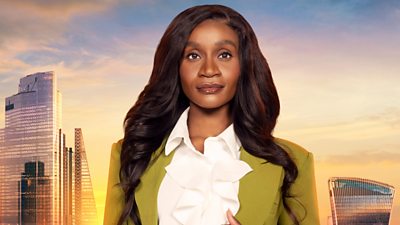
Owner, Virtual Assistant Company – Essex
How does it feel to be one of the last five candidates standing in the competition?
Honestly just crazy! It’s so surreal. I watched the show growing up, it’s something that I would say I’ve always aspired to get to. But just an amazing achievement and I think my younger self would be very proud of me right now. I’m feeling grateful, blessed, but also happy to have been able to have kept my cool to be able to make it this far.
When Lord Sugar told you you’d made his final five, you were very tearful – why?
I think task 10 was really challenging. I was project manager, but not just that there were only three of us on our team, so I felt like we were the underdogs and we were on the back foot. I think being told that we won the task, and I had made it into the final five, it was a feeling like I’d achieved one of my life goals. But also I think it was a feeling of it doesn’t matter what your background is, where you’ve come from, what your journey has been like, if you put your all into something, the results will speak for themselves.
One of the reasons why I got so emotional is I thought we had lost, I thought there’s no way that the three of us as a team have managed to beat the others, so I was honestly pleasantly surprised. I think all of those feelings just overwhelmed me in that moment and thinking of my journey to get there.
Has the process lived up to your expectations?
It was an incredible experience as a whole. There were so many highs. Definitely some lows, lots of ups, downs, twists and turns as well. But I think that’s what makes the whole experience so exhilarating. You never really know what’s coming around the corner, so it keeps you on your toes constantly. I felt like I was constantly ready for what was coming next, but also thinking, “Is it gonna be something to really get my teeth into, is it gonna be something that I feel really confident in? Am I gonna put myself up for Project Manager?” I think it did live up to my expectations, but it was a lot harder than what I thought it was going to be.
You are a trained nurse – in what field?
Yeah, I’m a qualified children’s nurse. I absolutely love children’s nursing. I’m still registered to this date, you have to revalidate every three years and I’ve been revalidating since I got my pin in 2017, so I’m still qualified to practice and I still do some agency shifts here and there as well. I absolutely love the pediatric nursing side, but when I was studying at university I had to defer because of my migraine. I was really struggling with that and completing standard tasks and being able to show up for uni.
So during that time I was working in Nando’s on the shop floor serving chicken and was catapulted into their head office as part of the learning and development team. I was the first ever to do that, to go from the shop floor straight up to head office. I went into that learning development role and I was teaching managers how to be better managers and I was 21 at the time, never been a manager myself! I mean this is a bit crazy, what life has thrown at me, because I was just trying to do something to kind of pass the time whilst I was deferred from uni.
I ended up in this role and I think that kind of opened up my eyes into the business world. I absolutely loved it. I did go back to finish my nursing, but I guess that gave me a bit more fire in my belly for business. I went on to do an MBA and then segued eventually into my own business. But I just had that fire in my belly of wanting to be able to do different things and a lot more on the business side of things. I still have a passion for children’s healthcare, the NHS, I feel really passionate about, but management and business was calling me.
Do you think your background in nursing has helped you in business?
Yeah, I definitely think it’s helped me in terms of handling pressure. I definitely stay calm in stressful situations. When I was a nurse, especially in A&E, you come in one day and you’re resuscitating a child who’s not breathing. So you are having to deal with the parents, who are obviously distraught, but also having to deal with a pressured situation. And you’ve got to stay calm. I think it’s helped me, it’s shaped me in terms of being able to remain calm under pressure, but also be adaptable.
I think one of the skills that you learn as a nurse is that sometimes things aren’t going to work. Let’s say you need to cannulate a child under pressure, it’s not working. Okay, we’ve got to pivot, we’ve got to try something different. It’s knowing that there’s always time pressure and you adapt quickly, swiftly, calmly, and approach these different scenarios with a cool head.
Do you think having the resilience to get through tough nursing situations has helped you cope with the knock backs that come in business?
Yeah, absolutely. I definitely think my resilience has grown through my nursing career. I suffer with migraine and the two of those combined, I’m constantly faced with different scenarios, one minute I’m fine, the next minute I’m having repetitive migraine attacks over weeks. I basically can’t do anything for a couple of months and it can get you really down. At times it’s got me really down, but being able to bounce back and be migraine free, I honestly cherish those moments because I know how hard it is when I am down.
And obviously having worked in the hospital there’s a lot of trauma filled situations that you are dealing with. I think it’s easy to, you know, internalise these things. But I think as a nurse you learn how to talk and decompress, we talk about how we felt and we talk about the lessons learned or what we can do better. But we also have patients to look after on a day-to- day basis and we have to come back ready to give our all again to our next patient. When you’re dealing with children, you’re dealing with children and their parents, so it’s not just the patients themselves.
You mentioned you suffer with migraine – when were you diagnosed with that?
So since I was a teenager I’ve had migraine. I was 15 years old when I remember my first one but my mum seems to think it was probably a bit earlier than that. But at 15 I was diagnosed with chronic migraine and it has really stifled my life at different moments. I think a lot of times people don’t really understand migraine.
When I joined the Apprentice, I luckily had a medication that worked for me and I’ve been on it for just under two years. If it wasn’t for that, there probably would’ve been a high likelihood that I would’ve ended up having a severe migraine attack, which would’ve then meant I had to withdraw from the process.
I’m a real firm believer in trying to raise awareness around migraine and how it presents because I think people do often think, “It’s just a headache, you’ll be fine.” There’s a lot of misconceptions around migraine. So it’s really key for me to be able to shed some light on that.
What was the toughest part of the process?
I would probably say two things. Not being able to communicate with my core friends and family members on a regular basis. I think you don’t even realise sometimes how much you rely on them to be able to just decompress after a day. Not having them as my safe space to be able to do that was really challenging.
And then just not knowing what was going to come up in each task. I genuinely felt so scared each time we would be going into a new task, not knowing what Lord Sugar was going to say, my palms were sweaty. I could feel my heart beating because I would just be like, “Oh my gosh, what’s coming up? Like what is he gonna say? Is it something that I’m gonna be good at? Is it something that my skills will fit right into? How am I gonna make my mark?” I wanted to be able to stay in the process so all these things were going through my head.
Did it feel competitive?
Yeah, really competitive, especially in the initial stages because when there’s 18 of you knowing that you are all trying to go for the £250,000 prize, and obviously not all of you can go through. I really tried to stay true to myself, how I am even on the outside world. I’m not the loudest person in the room. I’m not going to speak just for the sake of speaking, but when I do speak I want it to add value. That’s how I conducted myself.
In the first few episodes I generally only spoke when I felt like I would add value, not just for the sake of speaking. But I think that can be hard when you’re doing a TV show because naturally it is a competition, you’re all up against each other and so if you’re not being heard, can that be seen as you being too quiet or can that be seen as a sign of weakness to others? I do think some people probably thought, “She doesn’t say much, we don’t have to worry about her.” But little did they know! Don’t underestimate the quiet ones!
How intense were the boardroom showdowns?
It’s definitely an intense experience when you’re in there. I think it’s naturally quite nerve wracking to go in front of Lord Sugar, being such an inspirational businessman, and someone that, you know, I look up to and I’m sure all of my other fellow candidates do as well. Ultimately you want to impress, you want to show you’ve done a good job, you want him to recognise you, you want him to know who you are, and you want him to know your name. It is really challenging when you are in there.
When he would ask me questions, I really just tried to stay true to myself and be authentically me, which is owning up to mistakes, owning up to things that I might not have done the best, but also tell him about the experience too because he wasn’t there with us, but it was definitely very intense in there.
Did you learn anything about yourself through the process?
I learned a lot about myself. I learned how important it is to be able to quickly adapt and pivot, especially when things aren’t necessarily working. There’s so many curve balls and just different obstacles that come your way throughout the process. And I think you can apply this to any aspect of your life, being able to recognise when to switch and when to not hold onto something for too long or when to not stay in something for too long. Its about allowing those decisions to make but not break you. They can make you if you learn from them but you can’t let them break you.
If you could go back and do it all again, would you do anything differently?
I don’t think I would. I really threw myself into the experience and I really did try at every single hurdle. I think maybe if I had to choose one thing that I would do differently is speak up a little bit more for myself in the boardroom and when we are doing the group discussions. I generally only want to add value. And so for me that means even when somebody has potentially been a bit disruptive, I’m not going to necessarily say that about them because for me it’s all about uplifting each other versus bringing each other down.
So the only thing I would say is maybe I’d speak up a little bit more, not necessarily to put others down, but just speak up about my own personal achievements and what I had added and done well in the tasks. There were a couple of times I made some good sales but I didn’t necessarily choose to shout about it and it wasn’t necessarily brought up. So I just think I would speak more about my own achievements, especially in the boardroom.
What would your advice be to anyone thinking about applying for the next series?
I would just say stop listening to the small voice in your head that is telling you not to apply or not to go for the opportunity. I think the worst thing you can do is be your own worst enemy. I would say just apply, what is the worst that could happen? Absolutely go for it and if you don’t make it, then either try again or maybe it wasn’t for you and you need to go in a different direction. But I would just say have a go. Put yourself out there. Stop letting the fear of failure stop you from achieving your dreams or even trying to go for your dreams.
Dean Franklin
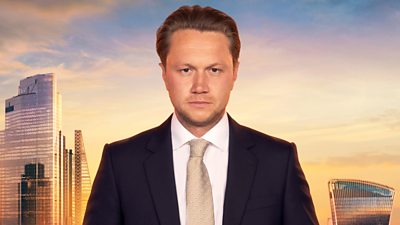
Owner, Air Conditioning Company – Essex
What’s it been like being a candidate on The Apprentice?
It’s all good. It’s been weird. I’ve been noticed a few times now on the streets, a few selfies with people, which takes some getting used to. Like, when we went out the other day for my birthday and the table next to us was whispering about us. And I knew that was the reason why. I just wanted them to say like, “Oh, you’re the guy from The Apprentice”, rather than whisper. They eventually did. When I went to the toilet, they asked my wife, “Is he from The Apprentice?” She was like, “Yeah”, and then we had a good conversation about it.
What did they want to know?
It’s always, “Who won, who gets fired?” You’re like, “Look, I can’t say, I don’t know!” I want people to watch it because I get dragged back to the boardroom a few times. I want people to watch it and think, “Oh, he’s gonna get fired now.” I want that excitement.
How does it feel to make the final five?
So to make the final five is like the pinnacle. It’s the best thing, I think, because it’s like when you watch I’m A Celebrity, everyone wants to make it to the cyclone. This is the comparison to that. For every Apprentice candidate, that’s the level they want to get to. They want to make it to the final five.
Has the process lived up to your expectations?
It was a lot harder than what I thought. But it was also a lot better than I thought as well. So it had two sides of the coin. It was really good fun. We’ve done some amazing stuff. There’s things you’re never gonna do again in your life. So I was grateful for that. Some massive life experiences there.
But also I did struggle with being away from the family. That was the hardest part for me because I’m with my family all the time. I’m so close to my kids and my wife, and to be away from them for that amount of time, I did really struggle with that. You are up against some really, really good candidates too. Everyone on there was really good. They’re all very good speakers. A lot better than I am.
Is there a moment that stands out for you?
I think the most standout point for me about the whole process, and this was probably one of my best moments, was early on, in task one when we went away. That’s where I probably struggled the most is when we was away abroad. When we went to Turkey and we went to Austria, I felt like I really struggled because I was away from my family.
But on the first task, because I knew I didn’t sell any tickets I knew I was getting brought back to the boardroom. I knew I got off to such a bad start. And it’s the first one, no one wants to get fired. The pressure was on me. I came back to the house and it erupted when I walked back through the door, the crew said they have never had a reaction like that. That was the biggest reaction ever. It changed me. That was a massive thing for me. It meant a lot. And then I just went into the next task feeling completely different. It was the turning point for me. I just felt that the only way was up after that.
Is there anything about filming the show that you didn’t anticipate?
Yeah, how nervous I’d be in front of the camera. I’ve never done anything to do with TV before. I’ve never been in front of big cameras and the microphones. I think it takes a lot of getting used to. In the first episode, a camera’s in your face, I thought, “Yeah, camera, that’s fine.” It’s when they shoved the microphone underneath your chin, you crumble.
Do you think maybe we haven’t seen the real you then because on that?
From what I’ve seen on the show so far, you’ve seen the professional side of me where I’m trying to be prim and proper, I’m trying to be as much like a professional as I can. I think as the process goes on, you do see the more relaxed me. I’m hoping that they can show my personality a bit more. Because at the moment it’s stern and professional!
You are the only father in the show this year, how much are the kids your driving force?
Yeah, that’s the reason I’m doing what I do, it is for them. I was the only parent in the whole process. None of the other candidates had kids and there was no one to relate to. So I was the only one missing my family, my kids and my wife. But yeah, everything I do is for them. That’s the reason I work as hard as I do. I don’t want them to ever have to worry about anything. I just wanna give them the best life possible. And if that means I’ve gotta work long days and nights, so be it.
Did the kids know what you were doing?
Yeah, so they knew what I was doing. My boy understood it. He knew the assignment. He knew he couldn’t say anything to anyone. He was really good. My daughter was a bit younger, so I don’t think she really understood exactly what I was doing. But she knew I wasn’t there. And she knew she could hardly speak to me on FaceTime. She probably thought I was in prison!
It’s a lot for your wife to take on…
She was chucked in at the deep end. But she is my biggest supporter. She’s the one that pushes me to do all these things and I wouldn’t be able to do it without her. So she pushes me and puts me in these positions and helps me get to where I want to. But yeah, she had a massive weight on her shoulders. I wasn’t there to support her. She’s not only dealing with the kids, but she’s also dealing with all the household stuff. She’s dealing with my business because she was the one that relayed all the information to me through my business partner. She was doing a lot.
Did it make you love your wife even more being away from her for so long?
I don’t think I could love her any more than I already do. We missed each other massively. And when I came home, we had some proper family time. We went off on holiday straight away. I actually broke down as soon as I walked through the door. It was emotional. We all did. But hopefully it’s all well worth it, you know?
How did you get into the air conditioning business?
So originally I wanted to do electrics, I wanted to be an electrician. I wanted to get a trade. I think my parents drummed it into me from a young age, you get a trade, you’ve got work forever. I didn’t know what trade I wanted to do. I’ve done a bit of plumbing, I’ve done electrics. I thought electrics is a bit more me, it’s less dirty. And then I applied for a job and the boss there said, “Dean, why don’t you do air conditioning?” So I sort of fell into it. I went into it and then saw how much money you could be making from it and all that side of things. And I got so good at it. And that’s when I thought, “You know what? I’m gonna stick at this.”
So I’ve done the apprenticeship, passed all that, become an engineer, taught a few apprentices myself. At the time people thought I was crazy because I was on a good salary, in a good job and I wanted to jack it all in and go out on my own. And this was during the pandemic where businesses weren’t starting up and everything was going wrong for a lot of people. I made the gamble. I made the jump and me and my business partner, we quit our jobs and we started up on our own. I had two newborns at home and it was a massive risk. And we just worked and worked and worked. It got to a point where it’s been a good business.
It has been successful so why then take on a process like this?
So I’ve got the business to a point where I think it’s hard for me to take it to the next level. I’ve never had any business training in my life. Everything that I’ve done, I’ve learned myself. I’ve just gone out and tried it. I’ve never been to university, I’ve never studied anything to do with business. So for me to now get this to the next level, I think to have someone like Lord Sugar guide me through the next stage would be massive. It’s not so much the money that I’ve entered the process for because the business does well, we’ve got money in the bank. It’s more the guidance, it’s the mentoring over the money, for me, that’s what I care about.
Did you learn anything about yourself during this process?
I learned how emotional I can be, which was new to me! I felt like it broke down a few barriers. I felt like I was tested in ways that I’ve never been tested before. To come up with an idea or come up with a logo or come up with a slogan and you’ve got to think on your feet. I’ve never had to do that. I felt like I was quite good at it. I must have been if I got that far, you know? And I probably don’t give myself credit for the things that I’ve done.
What’s your advice for anyone thinking about applying for the next series?
Do not think it’s easy, because it is not. When Lord Sugar says at the start of every episode that this is the toughest process. Believe me, it is the toughest process you will ever go through in your life. Not only is it tough on the tasks, like I said, you’re dealing with the emotional side of things as well. From missing people to the social side where your battery’s getting drained. So there is so many more elements to it than you think. You’ve just got to go into it and you’ve got to be mentally strong.
Jordan Dargan
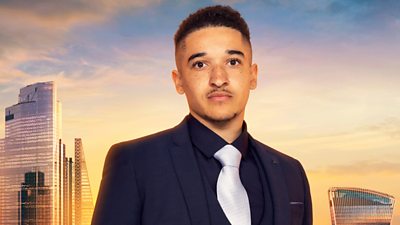
You’ve been a fan of this series since you were seven. So how does it feel to be in the final five?
It’s not surprising! Going in I wasn’t going in there to even get to the final five, I’m going in to win. So I expected this from the minute I applied to be on the show, to be honest.
Where does that confidence come from?
I think you always have to believe you can do whatever it is you’re going into or else what’s the point of starting? You know, I went in having watched the show for so many years, I knew the format, I knew what worked, what didn’t work. I understood out the gate that the loudest candidate isn’t always the most intelligent candidate. Sometimes you have to play the field and suss everything out.
And as the process went on, I became more confident, I became more aware of what Lord Sugar was looking for in a candidate. I knew I’d make the final five, without a doubt.
How did you find the process up until this point?
I’d say the most surprising thing for me about the process was the unpredictability of other candidates and how that had a role to play in your performance. So you go into it thinking, “Yeah, I’m fully in control here”, but if you get two people who aren’t too fond of you and they want to move some things around in a certain way, very quickly you’ll end up in that bottom three. Luckily that didn’t happen to me. I was able to perform week in, week out.
Being the youngest candidate this series, do you think that made a difference, that maybe you were underestimated?
All you have to do is watch episode two to see that straight away. I was an expert in the field and I wasn’t chosen, what the reason is for that, you know, is open to interpretation, I guess. But I believe from day one I was underestimated. People just saw a young, naive, Irish kid with not a clue as to what he was doing.
I like being the underdog. If people underestimate you, they’re focusing on other things. They’re not watching you coming through and growing. So yes, without a doubt, I think I was underestimated. There was a website where they were voting for who would be fired first. I was number one. I love when people doubt me because it gives me that fire in my belly to go and prove them all wrong.
You’re self taught in 3D animation, how did you get into that field?
The simple answer is, I was broke! I guess, for me, I was in a situation where I’d left a job in London with the intention that I never wanted to work for someone ever again. I want to have my own business and I want to go all in on that. So out of necessity, I had to make something work and I couldn’t wait four years and not earn and maybe get a loan. I had to figure it out.
I’m a big believer in the 80/20 rule, that 20% of input accounts for about 80% of the final result. So I thought if I can learn the key things I need to learn to be able to service clients and get paid, let me learn that. So I went on YouTube, and you know what, it’s free. For the modern age, YouTube can act as your online university. There’s an unlimited array of topics and things you can learn if you actually want to educate yourself. It is, in my opinion, the most powerful resource on the planet right now.
Why choose 3D animation though?
I was always a very creative guy, I wanted to do it, but I guess I always thought it wasn’t possible. I was like, “You need to go to college for that, it’s too difficult. Let me do something a bit more simple”. I watched one tutorial and I actually gave up on it for a week. I was like, “No, this is not for me. This is too difficult”. And I said, “Look, let me stick with it. Let me give it a month to see how I do.” And after a month I was figuring it out. Growing up I was always very artistic, but I never had a way to monetise that. I never had a way to make my art my career. And this was a medium for me to do that.
You’ve had some great success in your business, what has that taught you?
I think the first thing it’s taught me is that I can be independent when it comes to my finances. You don’t have to always rely on an employer. It’s a weird feeling when you realise I’ve made X amount this month, I’ve made that happen. That in itself, regardless of the amount, is an amazing feeling. So proving to myself that it’s possible. I think also proving that it doesn’t matter how new you are to an industry, if you can convey an idea, people will buy from you.
My first client, I got it through a friend, was Jagermeister. You know, that shouldn’t happen. I worked at CRAFTD, who are one of the fastest grown men’s jewellery brands in the world, that should not have happened. But I showed them what I could do. They believed in my vision, they believed in me. And that’s all you need sometimes.
So you’ve got those brands and you are on a bit of a momentum, why did you feel the need to come into this process?
Lord Sugar has been a massive inspiration of mine. Look, although I might feel like I have all the answers, I don’t. And I think at my age, it’s one of those periods where learning is more important than earning. You need to get in as much information as you can when you don’t have the responsibilities, you don’t have kids, you don’t have anything, spend as much time, every penny you make, learn more. And who better to learn from than one of the most successful businessmen in the entire United Kingdom? So, although the £250,000 is an amazing influx of cash into your business. I think the mentorship you receive from Lord Sugar is worth so much more than any amount of money he could ever give you.
You didn’t come on the show for fame?
If I wanted fame, I would’ve gone on Love Island, you know? They couldn’t resist this face, I had to turn them down before this! I came on this with one purpose and that was to win, win this process and get that investment in for the business. There’s that saying, losers focus on winners, winners focus on winning. If everyone’s focusing on you, they’re not worried about the task and everything else. I was just laser focused, tunnel vision on winning the process and everything else is just nice.
What was it like growing up in Ireland?
I was just a normal Irish kid. You know, I played Gaelic football. I always felt like I was normal until I was made aware that I wasn’t the same as everyone else. It was a predominantly white area. Back when I was growing up, it wasn’t that normal to have mixed race children. So in school it was always a little bit odd. I didn’t feel the same. You’d get the odd comment here and there, which was obviously difficult. It’s a very strong Catholic country as well. So certain schools I wouldn’t even get into because I wasn’t Catholic.
I never really wanted to be an entrepreneur. As soon as I could get a job, I got a job. And it really wasn’t until I left my first job that I was like, “I need to make money. What are other ways to make money? I need to make something. I can’t not work”. And that was when I started looking into entrepreneurship just out of, again, necessity. It’s like that fight or flight kicks in.
You said you were treated differently for being mixed race, do you think that experience made you who you are now, gave you a sense of resilience?
Exactly. I’ve had Gaelic football matches where I’ve been called certain slurs and names and whatnot. You get very thick skin from it. I think that helped in the interviews for this, you know, you’re getting so much stuff thrown at you, you’re getting critiqued on every aspect of your business. If you haven’t got thick skin, the waterworks might open or you might crumble under the pressure. That’s just not me. I’ve gone through so much that nothing that anyone says can penetrate my mind and make me feel any different about who I am.
What is the biggest thing you have had to overcome to get to where you are now?
There’s been a lot of things. Growing up, my dad was quite a harsh man on me. It was difficult growing up with him. I’m half Nigerian. And I think for any Nigerians, you know, parenting can be quite hard. It’s not a general thing, but in my situation, it was quite difficult. He used to say to me, “Jordan, I don’t want you to be perfect, but I at least want you to be close to it.” If I wasn’t close to perfect, you saw the consequences of that and it wouldn’t be good.
I was going through life with this feeling, “Okay, I’ve got to be close to perfect.” We all know that’s not possible for anyone. What is perfect? But in some ways that instilled something in me where I just always aimed for perfection. And I think in some areas it’s helped. I think with my career, it’s helped. It’s given me such a good eye for things to be right. I need to get them looking good. I’ve built that over the years. I’ve got a very good eye for design. But also there’s areas where I’m very harsh on myself. I’m still trying to get to a place where I’m okay with what I can do.
How did you find living in the house with everyone?
I mean, you’re in a £15 million pound house in Hampstead Heath. You’re living in luxury. You’ve got a swimming pool, sauna and jacuzzi, as much food as you could want. Yes you haven’t got your phone, you haven’t got music, you haven’t got these things that you have, but you find yourself. I remember when I was a kid playing board games and I used to love it. Nowadays the average attention span of an adult is about three seconds. I couldn’t sit through a whole game of Monopoly in the real world, but that’s what we did. It was really interesting after the first week when you run out of small talk, what do people resort to? And I think that’s when you really peel back and you get a bit more personal. You’re talking about your family life and stuff that’s gone on in the past. That was a beautiful thing to see, that growth as the weeks went on, to go from strangers to family.
Did you learn anything about yourself during this process?
I learned a lot of things. When I went into the process I wouldn’t have said I was one of the strongest public speakers. But when it came to any presentations, I was always the first in line to do it. I’d never done public speaking in my life. I was a really shy kid, to be honest. So then to come into something like this and you’re the public speaking guy, to do that with a group of entrepreneurs and businesspeople and be told you are actually really good at this as well, was really cool. I actually can work well with other people and learning new things. I mean, when are you going be out negotiating in public for a horseshoe? That’s never going to happen in my line of work. But being able to go out and smash it and prove to yourself that you can’t actually do it shows that, you know, maybe I am actually a well-rounded entrepreneur.
What’s your advice for anyone thinking about applying for the next series?
Never give up. I applied two years in a row. First year, I did quite well, got quite far and then there was one stage where I just crumbled. It just didn’t go well for me. I didn’t hear back. I learned from that. I said, “Okay, this is why you didn’t do well.” I came back year two, tried it again. I didn’t do what I did the year before and I went all the way. And actually a lot of people don’t know this, but I was a reserve initially. I wasn’t even in the original 18 candidates.
It was two days before filming, I got the call saying they wanted to offer me a place. I had to mute the phone, turn the camera off and have a little celebration because I was mid haircut! And then the panic kicks in of, “Oh crap, I need to buy some suits, I need to pack for the next three months.” So I went from rejection the first year, to nearly not making it the second year and then ending up in the final five.
Why do you think you were successful the second time of applying?
If I’m being completely honest, I probably went in year one with the mindset of yes I’m a business person but it’s a TV show so I have to show them some version of myself that’s a bit more amplified. I wasn’t being true to myself, if I’m being completely honest. I was almost putting on something else. I went in thinking, “These are probably the questions they’re gonna ask. Here’s how I’m gonna answer them.” This year I went in thinking, “Whatever they ask me, I’m gonna be myself. I’m gonna answer like it’s a chat down in Temple Bar in Dublin and just keep it really chill.”
And that’s exactly what I did. And I think that’s why I got on the show, because I was true to myself and that’s what they’re looking for. They’re not looking for reality TV stars, they’re looking for business people. And that’s what I showed them. I showed them that I was a competent young man who knew what he was talking about. Now to be the youngest candidate and the only Irishman to make the final five, that’s an accolade in itself. I’m so proud to have gone as far as I have at the age that I’ve done it and to just made one of my little dreams come true.
TheApprentice@organic-publicity.com

